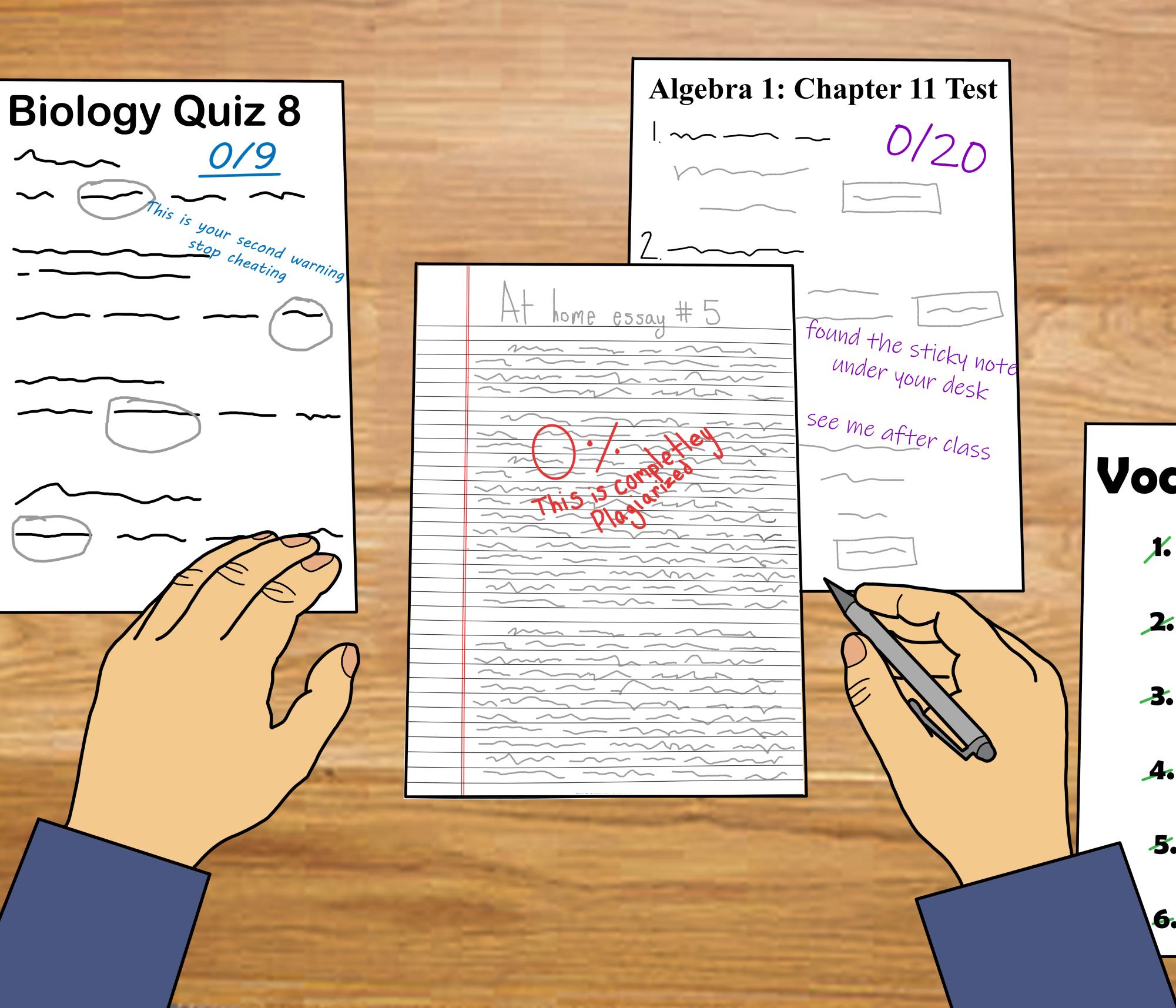Cheating on school assignments has been around for decades and has varied with new developments of technology resources. However, while students cheating substantially is discussed often, the way they get away with it is not.
From online school due to the COVID-19 pandemic on top of accessible cheating tools, cheating is occurring multiple times from the same students and not being taken care of.
English teacher Jacqueline Ciolek said, “I think it’s gotten easier, cause I think you guys have all this technology and apps. When I was in school, we had camera phones eventually, but it was harder,” describing how cheating was when she was in high school versus now.
Especially since COVID, many more technology resources have formed over the years. After the harsh adjustment of doing tests and assignments on a computer in a bedroom to doing everything in class with a teacher and peers, students have undergone changes, especially with the difference of setting and what is acceptable in those different settings.
“I think there’s a lot of really awesome tools right now like Chat-GPT and other things like Quizlet to help,” Ciolek shared. “You guys have things to help with your study skills, but at the end of the day, though, you can’t put your name on something that’s not your own work.”
A lot of technology tools are used in various ways by students, sometimes beneficial and sometimes harmful. When it comes to why students cheat, Ciolek had a few thoughts. When asked about how difficulty of the class affects the data of students cheating, she agreed that the more difficult the class, the more cheating there occurs to be.
“You’re cheating in Stats, these classes that you’re just so stressed, and I think it comes back to how we can help eliminate that stress, because I do think that’s when you crack and they result to cheating,” Ciolek said.
English Language Department Tutor Sujata Arora had different opinions. “They don’t try,” Arora said, “If you don’t understand something, teachers are there to help you out. You have to make an effort to come to them and try to understand your work.”
Megan Foster, an English teacher, expressed similar thoughts to both Ciolek and Arora. “I think students cheat because they have too much work and they don’t see the value out of the end. They’re strapped for time and they feel like homework doesn’t count,” Foster commented.
Ciolek said, “A lot of us for a long time would say, ‘okay, your first time cheating, we’re gonna handle in house, in my class.’ But let’s say I handle it in house in my class and Mr. Bato handles it in his class. You know, Mr. Messina in math. And now you’ve gotten away with it in 6 teachers. And then let’s say next year you have all those 6 teachers. By the time you’re a senior, you’re a serial cheater. You have already developed this warped mindset and these bad habits. If one teacher allows it, it’s just giving you that false reality that you can do it more and more.”
The current system of how cheating is taken care of allows for students to get strikes and passes when they cheat once. However, some students are doing this in every class, leading to multiple ‘first times’ at cheating instead of punishment.
“I think we need to kind of put that fear in [students], and we’re hoping for support from admin when you do send them, and to admin that we need to nip it in the bud now so that they understand the consequences before they get to college when those things are even higher and the consequences are more serious and can have long term effects,” Ciolek said, emphasizing the detrimental effects cheating in high school right now can have in the future.




